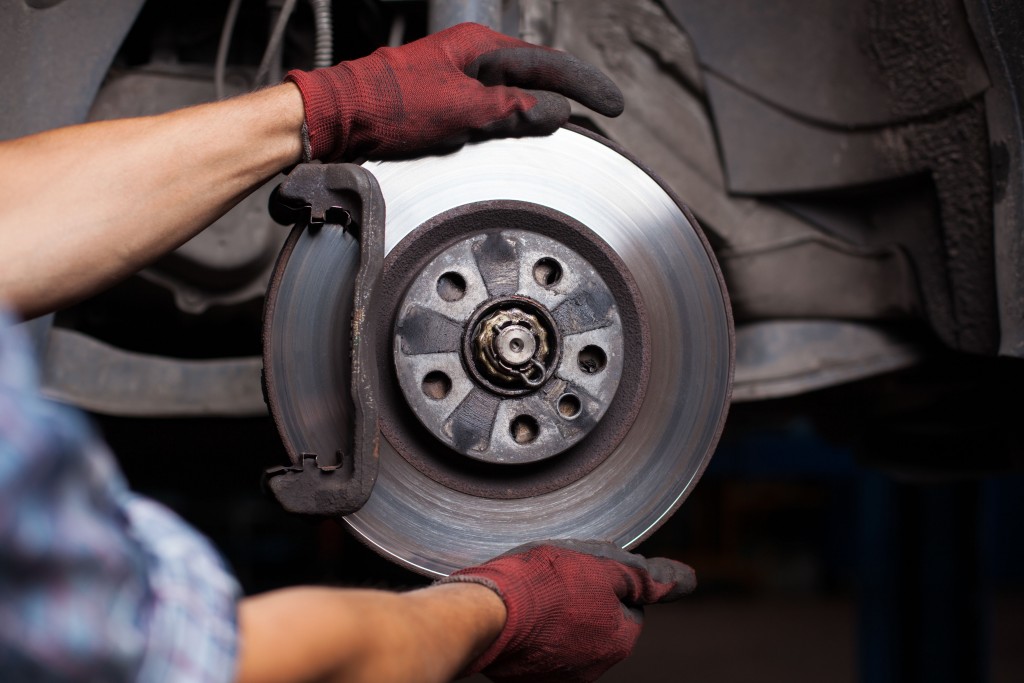Your car’s brakes work hard. And the job they do is critical to your safety.
It’s important for you to be aware of how your brakes work, and to be alert for signs that your brakes need maintenance.
Here you’ll find an overview of braking systems and tips to help you know when it’s time for brake service. No matter what your brake system needs, The C.A.R. Guys are here to help make sure your car is functioning properly.
About Braking Systems
Today’s braking systems are composed of a number of integral parts all working together to ensure your vehicle stops properly. Generally speaking, by depressing the brake pedal, you are telling the master cylinder to compress brake fluid, which in turn sends hydraulic pressure through brake lines that activate your vehicle’s brake pads (or shoes). These pads (or shoes) then make contact with spinning rotors (or drums), slowing down or stopping the vehicle. More complex systems use sensors to activate the brake system, but the net desired effect is the same. The parts that make up your vehicle’s brake system wear down over time and eventually need to be replaced.
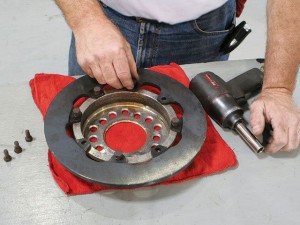
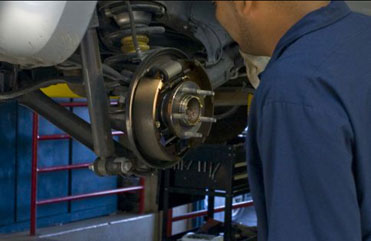
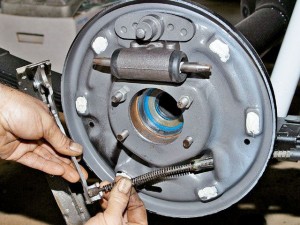
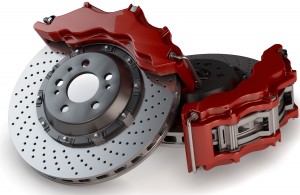
The most common brake repair performed is the replacement of brake pads (shoes)
Whether composed of ceramic, semi-metallic, or organic materials, brake pads erode each time you depress the brake pedal. If the pads wear down too much without being replaced, then the metal housing for the pads will make contact with the metal rotors (or drums). Not only a safety issue but a situation where the rotors/drums need to be replaced as a result of the prolonged contact of metal parts without the pad buffer.
A few signs you should have your brakes checked
• Squeaky sounds when applying brakes
• Grinding sound when braking
• Brake pedal travels to floor when braking
• Pulsating sensation in pedal when braking
Questions about your brakes?
Give us a call. We’re here to help!

